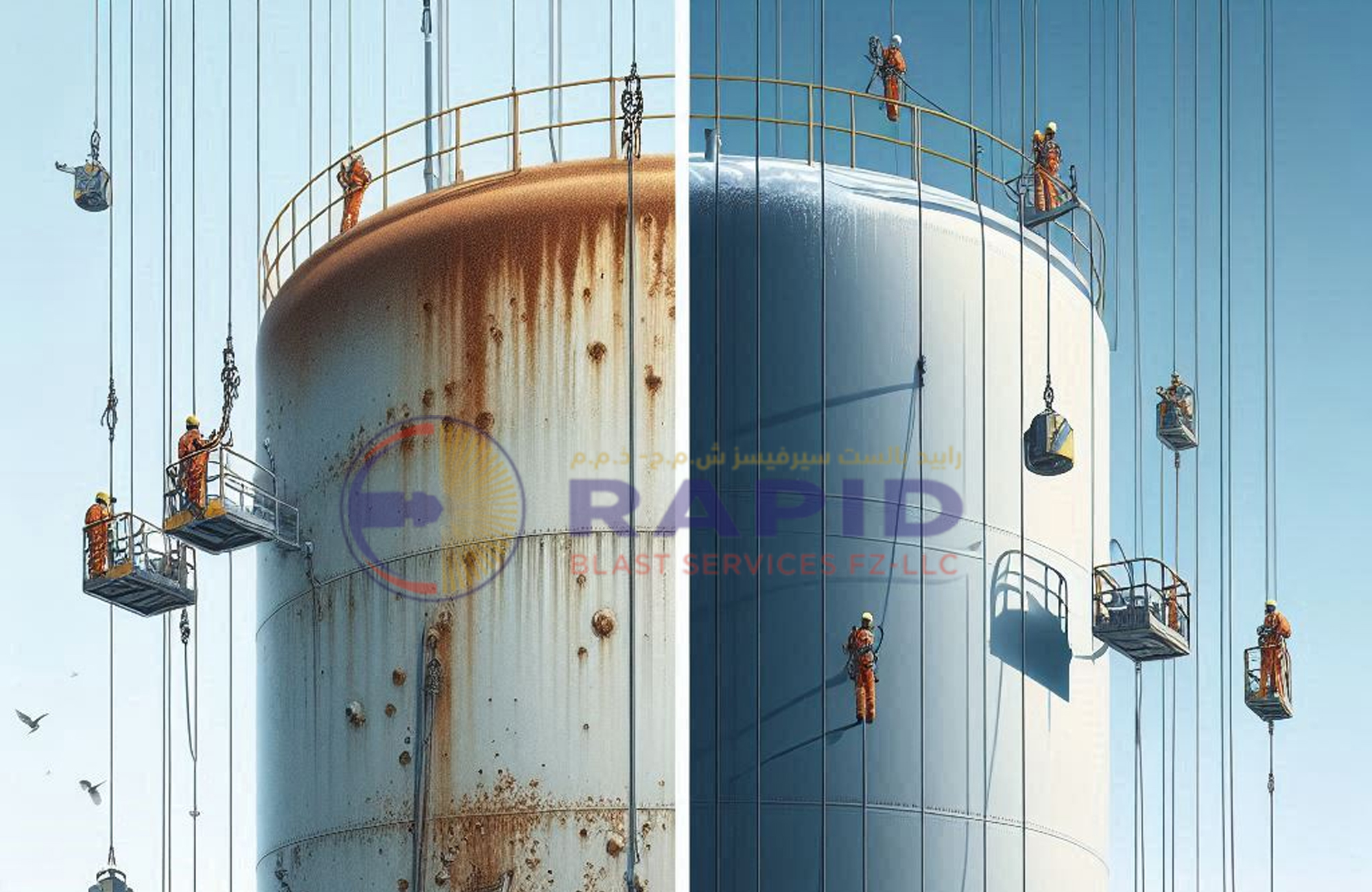- 0588499662
- ruddy@rbsfz.com

The Importance of Protective Coatings
In the world of industrial maintenance and asset preservation, protective coatings play a vital role. They act as a shield, defending valuable structures and equipment from the relentless forces of corrosion, weathering, and chemical exposure. This blog post explores the critical importance of protective coatings and their impact on extending the lifespan and ensuring the reliability of assets.
What are Protective Coatings?
Protective coatings are layers of materials applied to surfaces to prevent degradation. These coatings come in various forms, including paints, epoxies, urethanes, and other specialized formulations, each designed to combat specific environmental challenges.
Why are They Important?
- Corrosion Prevention:
- Corrosion is a major enemy of metal structures, leading to weakening and eventual failure. Protective coatings create a barrier that prevents moisture and corrosive substances from reaching the metal surface.
- Extended Lifespan:
- By safeguarding assets from damage, protective coatings significantly extend their operational lifespan. This translates to reduced replacement costs and minimized downtime.
- Chemical Resistance:
- In industries dealing with harsh chemicals, protective coatings are essential for preventing chemical attacks that can degrade equipment and structures.
- Weather Resistance:
- Exposure to the elements, including UV radiation, rain, and temperature fluctuations, can take a toll on outdoor assets. Protective coatings provide a robust defense against these weathering effects.
- Enhanced Durability:
- Protective coatings enhance the overall durability of assets, making them more resistant to abrasion, impact, and other forms of physical wear.
- Safety Improvements:
- In some cases, specialized protective coatings can provide fire resistance, or improve visability, therefore improving safety.
Applications Across Industries:
Protective coatings find applications in a wide range of industries, including:
- Oil and Gas: Protecting pipelines, offshore platforms, and storage tanks.
- Marine: Safeguarding ships, bridges, and other marine structures from saltwater corrosion.
- Construction: Extending the lifespan of buildings, bridges, and other infrastructure.
- Manufacturing: Protecting machinery and equipment from chemical and physical damage.
